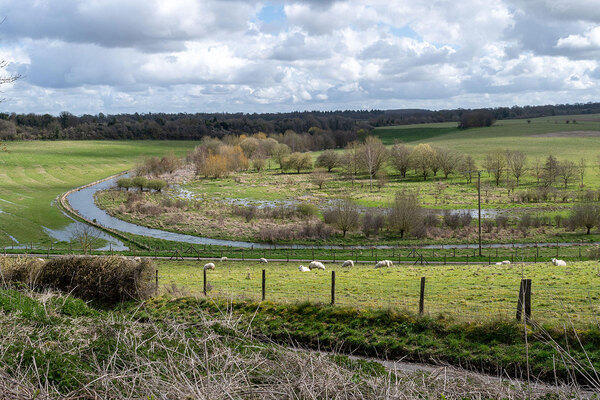You are viewing 1 of your 1 free articles
Removing barriers to rural housebuilding
Ursula Bennion, chief executive of Trent & Dove Housing, and Jo Lavis, director of Rural Housing Solutions, highlight lessons and recommendations from new research into what housing providers need to boost the numbers of affordable rural homes
Add up all of England’s rural communities and you have the equivalent of a region larger by population than the whole of London or the South East. A fifth of our country’s people live within rural local authorities, including 4.8 million workers and half a million businesses.
Yet, there is economic under-performance and significant barriers to opportunity for lower-income households in these areas.
Social housing is integral to overcoming these challenges. But in smaller rural communities, it accounts for just 9% of the total housing stock, compared with 17% in predominantly urban areas. Also, recent years have seen a reduction in the number of housing providers willing to develop in these communities.
Our report, There’s a will – here’s the way, produced with the Rural Housing Alliance, pinpoints the particular challenges of providing affordable homes in rural locations. It recommends practical steps to unlock greater provision of affordable housing for rural communities.
There’s no doubting the desire to increase rural housing, but this rests on four interrelated factors: land, money, planning and community support. The principal challenge to delivery cited by the providers we interviewed was the higher cost of building smaller or more remote rural schemes, for which there are limited economies of scale.
New requirements for nitrate neutrality mitigation and biodiversity gains, plus updated consumer standards, have increased these pressures. Homes England has extended a degree of flexibility and rural top-up funding, but interviewees stated that this was still often insufficient.
“Evidence already shows a sharp decline in housing association activity in smaller rural communities, with fewer new affordable homes built in villages”
Interviewees also highlighted a shortage of suitable sites, hindered by the patchy implementation of rural exception sites and delays arising from the under-resourcing of council planning teams. Inconsistent enabling support and community resistance to new housing in some areas can combine to form a perfect storm.
Based on this research, our report makes recommendations across four themes to boost the supply of new, high-quality, affordable homes in rural areas.
Evidence already shows a sharp decline in housing association activity in smaller rural communities, with fewer new affordable homes built in villages. Without increased grant funding, this trend will accelerate as providers increasingly focus on larger developments in more urban locations.
To turn this around, we’re calling on Homes England to commit to a target of at least 10% of completions under the Affordable Homes Programme and 10% of all its investment programmes to be delivered in parishes with populations of 3,000 or below.
To support this, we propose an automatic ‘rural multiplier’ for rural exception sites of fewer than 15 dwellings in these parishes, to cover higher costs. Homes England should also adopt a programme approach to improve financial viability and lessen risk for rural exception sites developed by either individual providers or consortia.
To reduce the risks, costs and time involved in delivering rural exception sites, we recommend the government introduces a ‘rural exception site planning passport’ – in effect, a bespoke permission in principle for these schemes. Backing this with a national development management policy specifically for rural exception sites would provide greater consistency, to increase take-up and achieve faster decisions.
“Successful rural development needs to have leadership driven by the vision, skills and commitment of local politicians”
To improve the level and effectiveness of housing enabling, we call for two actions. First, an early announcement that the funding from the Department for Environment, Food and Rural Affairs (DEFRA) for rural housing enablers will continue beyond March 2025. This would retain the intensive support needed for rural exception sites, including resources to secure positive engagement with communities and parish councils.
Complementing this, we’d like to see the Homes England local authority capacity building programme extended to share good practice on adopting and implementing rural affordable housing policies.
Successful rural development needs to have leadership driven by the vision, skills and commitment of local politicians. We therefore call on the National Association of Local Councils, working with County Associations, to deliver a rural affordable housing training programme for its members. We would also encourage more case studies on the Rural Housing Alliance website to illustrate the invaluable role and impact of local leaders.
The Labour government has signalled its belief in social housing. And the recent Budget and consultation on the National Planning Policy Framework consultation provide an opportunity to make the changes recommended in our research. These steps will allow housing associations to use their skills and resources to build more affordable homes, helping to break down barriers to opportunity, kick-start economic growth and increase resilience in rural areas.
Ursula Bennion, chief executive, Trent & Dove Housing, and Jo Lavis, director, Rural Housing Solutions
Sign up for our development and finance newsletter
Already have an account? Click here to manage your newsletters













